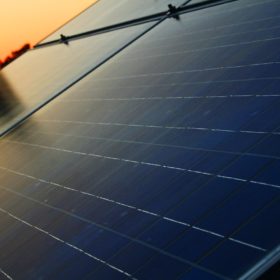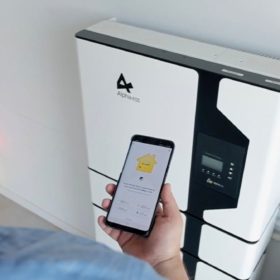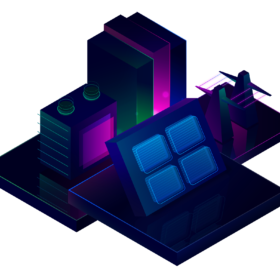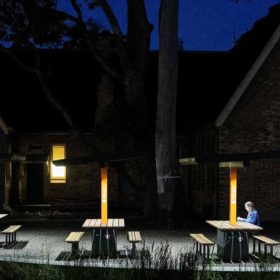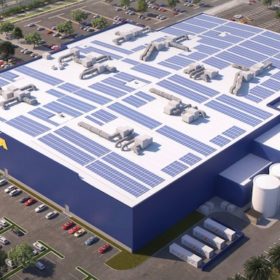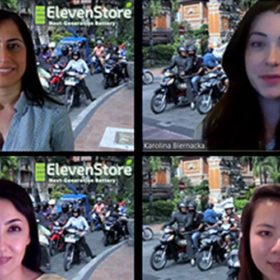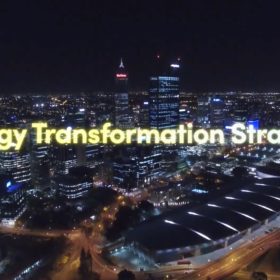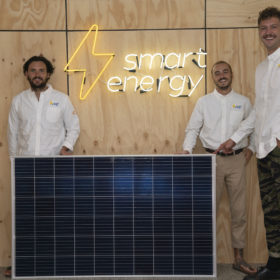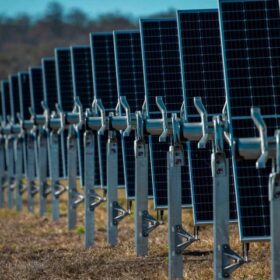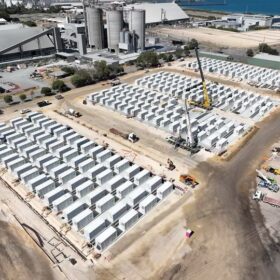Major economies should divert fossil fuel Covid-recovery cash to clean energy before it’s too late
A report by Finnish company Wärtsilä has estimated the potential impact if every dollar committed to a non-renewables energy sector recovery was instead funnelled to clean power.
‘Disrupters’ tip Australia to become world’s biggest VPP in 2021
As Australia’s home battery market begins to catch up to its install residential solar capacity the opportunity for large-scale virtual power plants is verging on reality. Indeed, Solar Service Group’s new Solar + Battery Members’ Plan could see Australia host the world’s largest virtual power plant next year.
CEP.Energy’s $1 billion C&I rooftop rollout
Never heard of CEP.Energy? The new green energy fund is set to become a renewable powerhouse, installing gigawatts of solar, plus batteries big and small across industrial estates and retail centres around the NEM. Institutional investors are making this virtual-power-plant vision a reality.
No-flow zinc-bro batteries set USyd campus aglow with solar energy
Professor Thomas Maschmeyer has taken his reimagining of zinc-bromine battery chemistry to the point of commercial launch; a new installation at the University of Sydney demonstrates the Gelion battery’s utility and appeal.
Ikea Adelaide constructing unique microgrid on its way to 100% renewable energy
Ikea Adelaide is leading the way for the Swedish giant’s global aspirations towards 100% renewable energy through what is being touted as Australia’s largest grid-connected commercial microgrid. The two stage project boasts a range of unique features which could lay the foundations for a new sustainable energy model for Australia.
Salt of the earth Deakin Uni researchers win global prize with innovative sodium battery
A group of Deakin University researchers have won a top gong at Climate Launchpad 2020 with their innovatory sodium battery which they expect to electrify Indonesia’s enormous scooter market within three years and outcompete lithium ion batteries in the near future.
Scania develops solar cell-clad trailer
The 18-meter long solar cell-clad trailer is said to enable fuel savings of 5-10% in Sweden. Swedish thin-film manufacturer Midsummer is a partner on the project.
Energy Renaissance lithium-ion gigafactory breaks ground in Tomago, NSW
In less than a year from today, Australia will be producing its own renewable-energy-storing lithium-ion batteries in the Hunter Region. A new $28 million Energy Renaissance facility will embed itself in the learning, hard-working, adaptable culture around the port of Newcastle, manufacturing exports that are expected to contribute some $3 billion to Australia’s GDP and advance the country’s energy transition.
Rooftop PV set to shine in WA’s energy future despite growing gas cloud
The Western Australian Government’s Energy Transformation Taskforce has revealed its first blueprint for the isolated state’s energy system transformation over the next two decades. The blueprint, which features four separate models, sees rooftop solar and accompanying battery storage excel in the coming years, although it suggests coal-fired power will still have a large presence.
Smart Energy’s protean culture helped solar to shine through Covid-19
Smart Energy is one of Australia’s most creative and fastest growing solar companies, largely thanks to a compassionate business plan which came into its own since the outbreak of covid-19. The various lockdowns and increased electricity bills have driven an accelerated uptick in residential solar and Smart Energy co-founder Elliot Haynes sat down with pv magazine Australia to talk about this unprecedented period.
